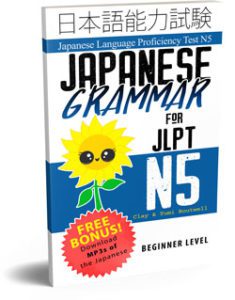ABOUT:
■ This sentence ender particle is usually used for emphasis. The speaker is fairly certain the information is correct. This can simply be to stress what the speaker is saying or it could be used to correct the listener’s understanding: contrary to what you may think…
Examples:
彼は、パーティーに行かないでしょう。
Doesn’t look like he’s going to the party.
いいえ、行きますよ。
Oh, yes, he is going.
[literally: No, (he will) go.]
MAIN POINTS:
■ Cannot be used with a か question ender (it would contradict the assertiveness associated with よ)
■ The sentence ender ね usually indicates shared information, よ is usually for information the speaker assumes only he or she knows.
■ ね can be used after よ to mean, “I say X, don’t you agree?”
今日は、楽しかったですよね。
Today was fun, don’t you think?





